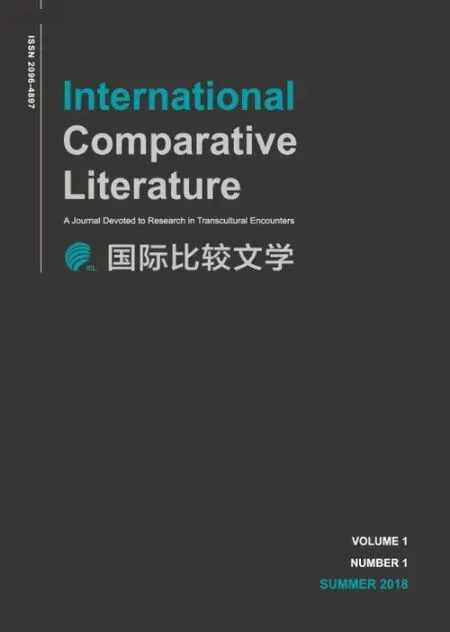Foreword
Nationality, language, culture. Three mutually co-evolving concepts that undoubtedly shape the world as we know it, sometimes as distant abstractions; other times permeating the core of our personal sentiments and experiences. The milieus of their different iterations create a tension between inside and outside: by establishing national unity the groundwork is set for interethnic misunderstanding and conflict. Mediating this tension will be central to the development of Chinese culture and literature in the new millennium.
A second tension, that between past and present, will be equally important to China in the 21century. As many have noted, the relationship between the past and present is not purely antagonistic; much like inside and outside, they are hermeneutically complementary and must be considered together. Indeed, any consideration of the “present” must take into account the way it emerges from and builds on the social customs and natural conditions of the “past.” Otherwise, the present would be nothing but a string of fleeting and disconnected moments, eliminating any orientation. On the other hand, to reify the past denies the essential fact that nations, languages, and cultures are inherently fluid, mutable, and ever-changing.
Given the ascendancy of the tensions between inside/outside, national/international, past/present, and ancient/modern, for those interested in studying culture and literature in the current era, a critical question emerges: How should we position ourselves, and from where should we depart? This is an admittedly difficult question, especially in a moment when the line between truth and falsehood is obscure and there is rarely a congruous or subtle balance to be reached.In the presence of the infinite cosmos and the unending cycle of creation and transformation, we find the “everything will do” attitude unacceptable. Instead,we strive to adhere to humanistic principles that prioritize people and the harmony between Man and Nature. In doing so, we seek to bring about mental tranquility and physical quietude, and to be attentive to the pursuit of felicity, dignity, and self-fulfillment. As we see it, these are the ultimate aims of comparative literature and, by extension, our new journal.
From its inception, comparative literature has been a discipline that seeks to break down boundaries. But when literary scholars from dissimilar backgrounds cross national, linguistic, cultural, and even disciplinary boundaries, it is important to realize that “boundary-crossing” is not the objective per se,but a means by which a kind of literary “relation” can take place. These relations include consanguineal rapport de fait, but also involve “functional” and “value” relations that have nothing to do with the bond of affinal kin. Regardless, “boundary-crossing” and “relation-building” have been the sinews upon which comparative literature has developed, goals that resonate well with the ever-growing trend of globalization. Indeed, the advancing steps of comparative literature are in tune with the fundamental qualities of globalization and world-wide economic integration. As such, we believe our discipline will continue to overcome the crises it encounters; clearly, recent theories about the “extinction” or “death”of comparative literature are unfounded.
International Comparative Literature (ICL) grew out of Cowrie: A Journal of Comparative Literature and Comparative Culture, established in the early 1980’s by the late Professor SUN Jingyao (1942–2012). A prestigious and groundbreaking scholar, SUN founded the discipline of Chinese comparative literature in the newly formed People’s Republic of China. His journal helped introduce the budding discipline to the international community—it published contemporary Chinese scholars such as QIAN Zhongshu (1910–1998), JI Xianlin (1911–2009), and YANG Zhouhan (1915–1989)—and generated global recognition of the discipline’s importance.
SUN’s choice of a name, Cowrie, was indicative of the ambitious goals of the journal. Sea shells are believed to have been a form of currency used in the Zhou Dynasty. And, as a medium of interpersonal exchange, any currency is by nature co-emergent with social interactions and communications. Thus SUN’s initial intent of launching Cowrie was to enhance and enrich Chinese and foreign literatures and cultures as they took pains to cross boundaries and learn from each other. Moreover, cowrie shells have the unique characteristic of being iridescent on their external surface. This too can be a metaphor for SUN’s message: with a single rhetorical touch, words can shine with radiance and greatly impact those around them.
After the 1990’s, the academic ecology in China underwent dramatic changes, and comparative literature was promoted to a Subordinate Discipline under the First-Level Discipline in Chinese Language and Literature. Thanks to this reform, comparative literature in China has been able to thrive and access to intercultural resources has broadened. It was within this generous environment that we sought to expand our horizon and launch our bilingual, international, and academically original journal.
ICL’s dedication to publish in both Chinese and English is a continuation of the spirit of Cowrie: an eagerness to pursue conversation and dialogue across boundaries. Indeed, the journal hopes to inspire an ever-increasing number of scholars to devote themselves to exploring human “relations” by thinking “beyond boundaries.” And we look forward to engaging the problems of cultural, ethnic, and national “differences” in light of Xunzi’s philosophy, namely, to speak with a benevolent heart, to listen with a great zeal for knowledge, and to tell right from wrong with an unprejudiced heart. Our purpose is not to overcome “difference”or “misunderstanding” but to embrace the withered truths in others’ lives with the kindness of kenosis. We believe that by accepting and identifying with others, Self and Other can eventually become oneness; a oneness that is not monolithic or homogeneous but, based on the Doctrine of the Mean, abounds in the beauty of diversity and heterogeneity. In short, a true scholar of comparative literature lets kindness be her guide.
As we begin this exciting journey, let us work together to cultivate oneness and improve upon the fate of human civilization.

